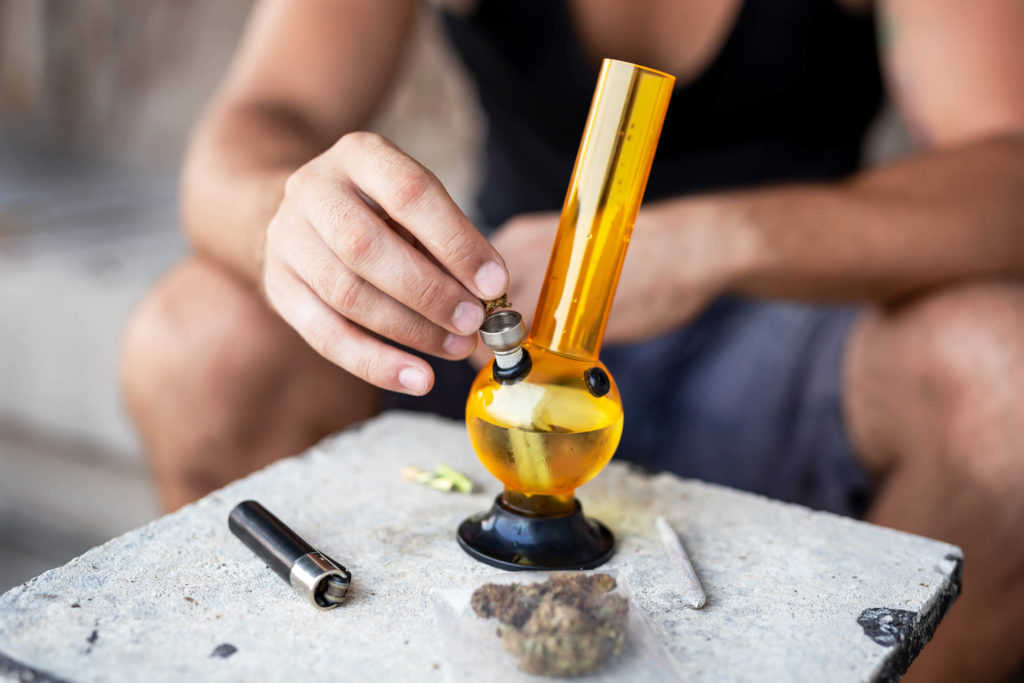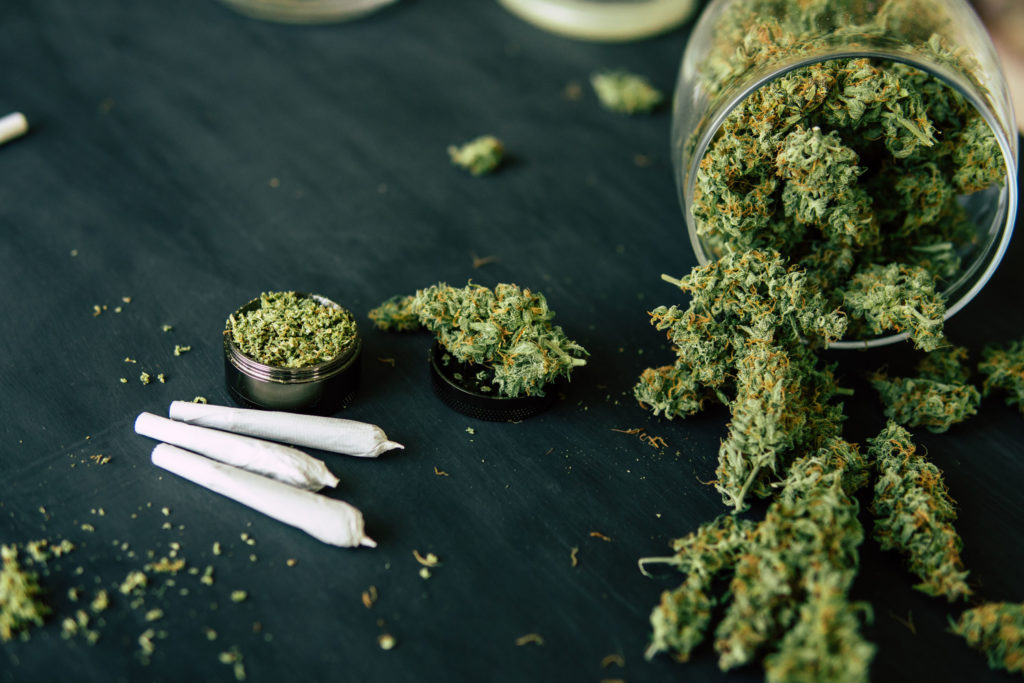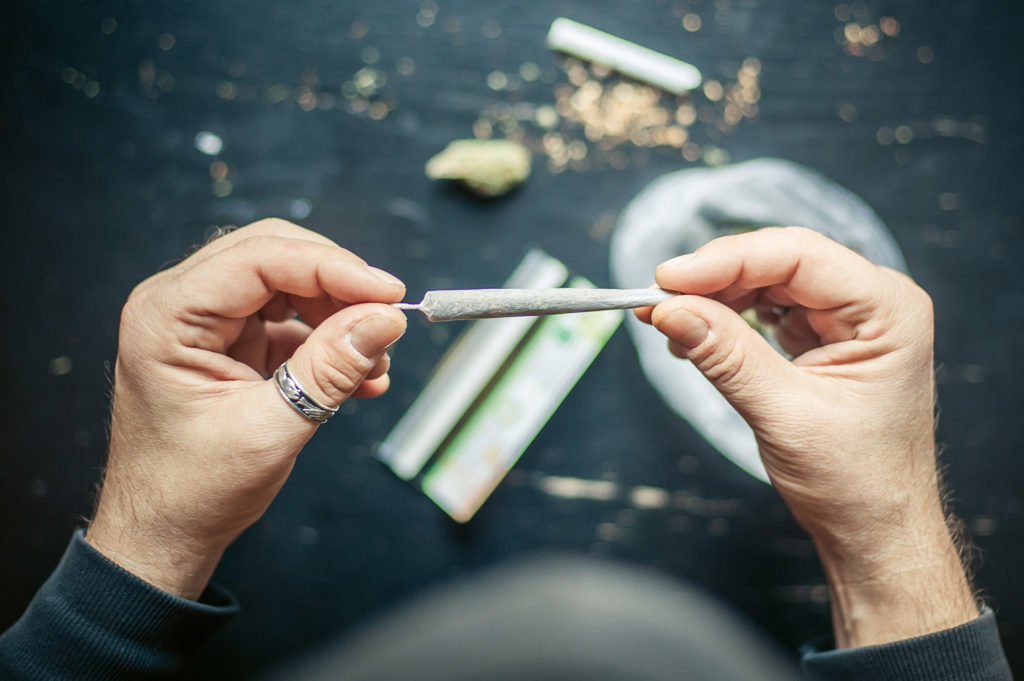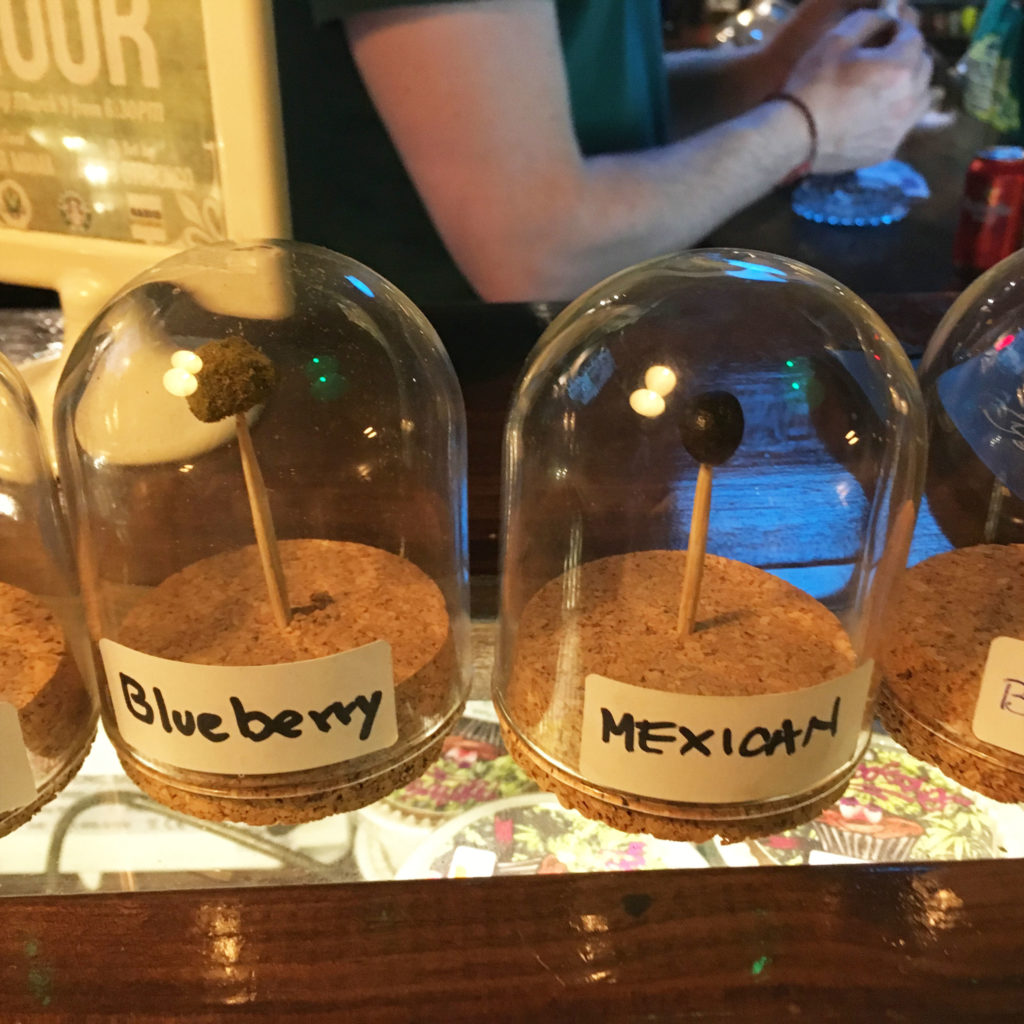While some people are happy to completely refute the fact: regular cannabis consumption can result in problems and dependence. Whether and when that happens is down to individual consumption patterns, as well a personal and social risk factors.
Following years of repression, cannabis is currently experiencing a renaissance. More and more countries are voting in favour of legalisation, or as a minimum decriminalisation. Supporters of this trend not only argue in favour of the medicinal potential of THC and CBD, they often also claim that cannabis is not addictive. While that may be true for the majority of users, this claim throws up problems because it is not in line with scientific findings.
“There should be no controversy about the existence of marijuana addiction. We see it every day“, says Dr David Smith, who has been treating addicts in San Francisco since the 1960s.
Many people have a quite fixed image in their minds of an addict, or “junkie” as they are commonly known pejoratively. Unkempt, pale, a vacant look in their eyes and constantly on the hunt for the next kick. If they don’t get it there are consequences, including: sweats, sleep problems, nausea, frustration.
But this polemic perception of addition doesn’t help anyone. To have a proper discussion about an emotional subject, we need to define and differentiate between the terms “addiction” and “dependence”.

Difference between addiction and dependence
It is a common misconception that addiction is a physical phenomenon, whereas dependence is a mental condition. In fact, the exact opposite is true: an addiction is compulsive behaviour that drives an individual to repeatedly give in to the irresistible urge to take a particular stimulant, even if it has negative effects on their own health and the environment.
Dependence is a physiological state which means that an individual is unable to function normally without using the substance, or give up said substance without suffering from unpleasant, or even harmful effects (“withdrawal”). A user’s tolerance limit with respect to the substance may also increase over time, meaning that ever higher doses are needed to achieve the same initial effect.
A person can suffer from an addiction without being dependent, and vice versa (for example a lot of people are physically dependent on certain medications without showing any signs of compulsive addiction).
The definition of “drug dependence” in the U.S. Diagnostic and Statistical Manual of Mental Disorders-5th edition (DSM-5) includes elements of both addiction and of dependence; this is defined as physical dependence following long-term compulsive consumption.

When cannabis consumption becomes a problem
According to this definition, cannabis addiction is really not far-fetched. Many recreational cannabis consumers display a certain degree of addictive behaviour, and heavy or daily consumption can also have a negative effect on day-to-day life – users may have problems maintaining their daily routines, for example. They may find it hard to hold down a proper job or to eat regularly, for example.
Most recreational users categorically refute the idea that cannabis can trigger physical dependence. They are convinced that there is no way that cannabis can lead to dependence; however, several studies prove beyond doubt that heavy users increase their dose (tolerance) and also display withdrawal symptoms.
The symptoms of cannabis withdrawal include irritability, loss of appetite, sleep disorders, anxiety, cravings for cannabis, moodiness and an increase in body temperature. These symptoms generally manifest themselves on the first day of stopping consumption, peak on the second or third day, and are barely detectable towards the end of the first week.
Cannabis dependence is consequently recognised in the DSM-5 as a clinical syndrome, largely following the same criteria as other substance use disorders.
We thus maintain: cannabis can leave users both addicted and dependent. Affected users typically show the first signs of addictive behaviour before they become dependent on the substance following long-term heavy consumption. A diagnosis of cannabis drug dependence also includes – just as with other drugs – elements of addiction, such as physical dependence.

Who is prone to dependence on cannabis?
Cannabis is less likely than other substances to lead to addiction and dependence. According to a 1994 study by the National Institute of Drug Abuse (NIDA), compulsive consumption resulting in dependence occurs in just under 10% of people who have smoked cannabis at least once. This percentage is lower than with other substances such as alcohol (15%), cocaine (15%) or heroin (24%), for example.
The risk factors for cannabis dependence are largely in line with those of other illegal drugs, and are generally inextricably linked with genetic predisposition and the environment. Young men are more likely to develop a dependence than other population groups, and the earlier consumption begins, the greater the risk of dependence. Furthermore, individuals with a low socio-economic status are far more likely to become dependent on drugs than those with a higher status.
It is difficult to establish to what extent dependence on cannabis is responsible for negative effects such as poor education/professional performance, financial problems and difficulties maintaining social contact, and to what degree these factors can be explained by a low socio-economic status or other causes.
How is cannabis dependence treated?
There are currently no cannabis dependence treatments available on prescription. However, there is increasing evidence that certain existing treatment programmes may reduce the tendency towards compulsive consumption.
It has been shown, for example, that cognitive behaviour therapy can be exceptionally effectively in reducing the compulsion to use cannabis. Other forms of treatment can also help heavy users to reduce their consumption or to give up cannabis altogether, for example motivational enhancement therapy (MET) which aims to change the individual’s behaviour, and multidimensional family therapy (MDFT). Today, we know that a targeted combination of multiple forms of therapy often yields the best results.
Am I addicted to cannabis?
Many cannabis users ignore all the warning signs of compulsive and dependent behaviour, continue their excessive consumption, and convince themselves that any long-term harm will anyway be minimal. This harm is the subject of a different article.

The fact is that cannabis can lead to dependence, even though this is far less common than with other substances. Have you ever wondered whether you are using too much cannabis? Look out for the following warning signs:
- Problems and difficulties resulting from consumption
- Consuming cannabis more often and in greater quantities than intended
- Withdrawal symptoms when not using cannabis
- Very often thinking about cannabis
- Having social or occupational problems directly due to consumption or due to obtaining cannabis
Of course, each individual needs to decide independently what is too much. Some people who use a lot of cannabis are completely comfortable with that. But if they have concerns about their own consumption, they should seek (professional) help. That is not a sign of weakness, but rather of strength.
- Disclaimer:This article is not a substitute for professional medical advice, diagnosis, or treatment. Always consult with your doctor or other licensed medical professional. Do not delay seeking medical advice or disregard medical advice due to something you have read on this website.










I smoked many pounds of weed in the 17 yrs total use. I stopped in 2000 to do job search and haven’t started again yet. Weed makes me sleep all night better than anything else. Alcohol is much more dangerous and gives you a hangover. Haven’t drank any since 2000 either. The worst side effect from weed is the fear of getting arrested and anxiety of pesticides or some dusting agent from an illegal dealer also black market you have to take what they have without much choice. I sure wish it to be legal for selective use and for my insomnia.
Bull shit IV started smoking bud at 13 every day and know I’m 34 and just quit for a good job…. I never had any with draws. so how can u say it’s additive. Will I ever back to it fuck ya I will when it legal in pa
You did not read properly.
It said only 10% of users got dependence or addicted.
And there is a difference between the physical dependence side and the mental addiction side bit both can also be a physical addiction or mental dependence althought it is rarer.
I smoked consistently not wanting to take opioids for several years, a bone had entered my sciatic nerve after the removal of the bone I was unable to find any other relief. Recently I started making hemp seed oil and immediately found added relief, however I still had to use cannabis. I now have added CBD oil and know longer use cannabis I have become totally pain free I still have the pins and needles in my feet which is no more than an annoying sensation. I use the seed oil salve on my feet and feel fine. absolutely know withdrawal symptoms from not smoking marijuana. I can now use weed as a way to unwind.